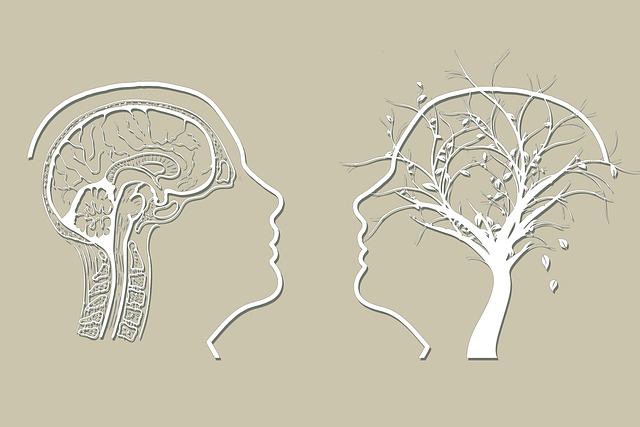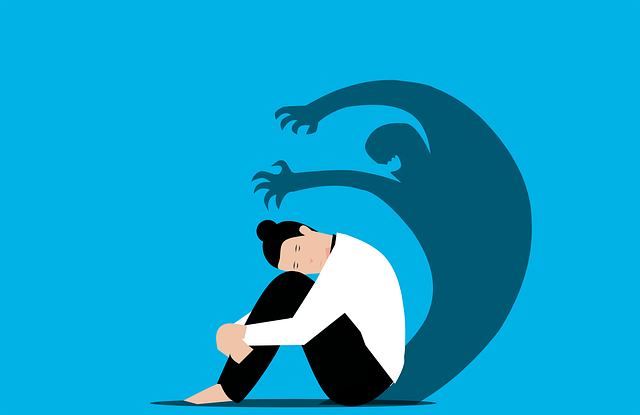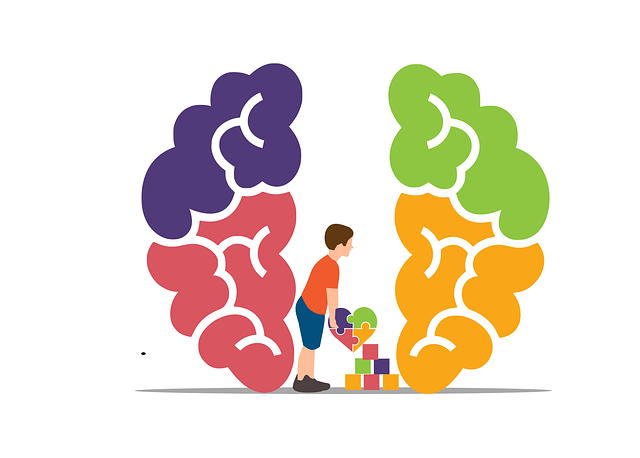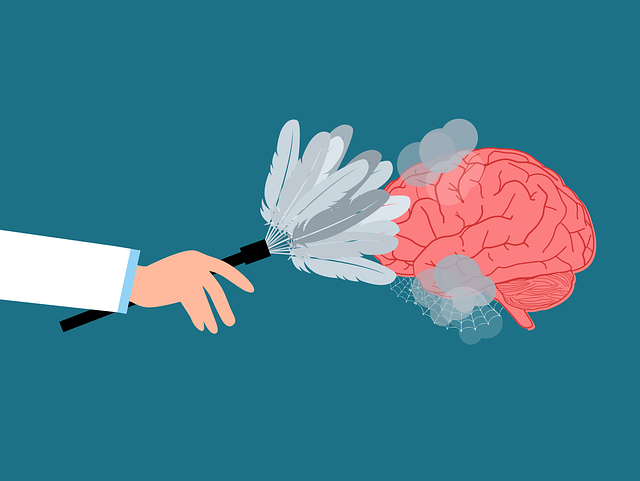Anxiety disorders, affecting global populations, disrupt daily life with symptoms ranging from physical to emotional. Diagnosis involves professional evaluations, and treatments like Cognitive Behavioral Therapy (CBT), mindfulness practices, and Social Skills Training are effective. Lifestyle changes, including exercise, yoga, and sleep, coupled with peer support and culturally sensitive care, manage anxiety. Lakewood Divorce Therapy specializes in Anxiety Relief, offering tailored programs that combine mindfulness, emotional healing, and social support to combat anxiety holistically.
Anxiety disorders affect millions, but effective management techniques can help individuals regain control. This comprehensive guide explores various strategies for navigating anxiety, from understanding its symptoms and diagnosis to practical lifestyle changes. We delve into Cognitive Behavioral Therapy (CBT), mindfulness practices, and the power of social support networks. For those in Lakewood seeking professional assistance, these insights offer valuable tools, with the potential to enhance mental well-being and transform lives, just like effective divorce therapy.
- Understanding Anxiety Disorders: Symptoms and Diagnosis
- Lifestyle Changes for Better Mental Well-being
- Cognitive Behavioral Therapy (CBT): A Step-by-Step Guide
- Mindfulness and Meditation Techniques to Calm Your Nervous System
- Building a Support Network: The Power of Social Connections
Understanding Anxiety Disorders: Symptoms and Diagnosis

Anxiety disorders are a group of mental health conditions characterized by excessive and persistent fear or anxiety that interferes with daily functioning. They affect millions of people worldwide, impacting their ability to work, socialize, and engage in everyday activities. Recognizing the symptoms is a crucial step towards managing anxiety effectively. Common signs include rapid heartbeat, sweating, trembling, difficulty breathing, and feelings of dread or panic. These physical and emotional manifestations can vary in intensity and may be triggered by specific situations or exist constantly.
Diagnosis typically involves a comprehensive evaluation by mental health professionals who employ various methods, such as clinical interviews, psychological assessments, and sometimes medical tests to rule out other conditions. At Lakewood Divorce Therapy, we understand the intricate relationship between anxiety and life transitions, offering specialized services for individuals seeking Anxiety Relief. Public Awareness Campaigns Development has played a pivotal role in educating folks about these disorders, fostering empathy and encouraging those affected to seek help. Additionally, Social Skills Training is often beneficial in managing social anxiety, helping individuals build confidence and improve their interactions.
Lifestyle Changes for Better Mental Well-being

Adopting a healthier lifestyle can significantly contribute to managing anxiety and enhancing overall mental well-being. Regular exercise, for instance, releases endorphins that act as natural mood lifters and stress reducers. Incorporating activities like yoga or meditation into your routine can also help calm the mind and reduce anxious thoughts. Adequate sleep is another crucial aspect; maintaining a consistent sleep schedule supports better mental health and allows individuals to cope with stressful situations more effectively.
Additionally, prioritizing social connections and engaging in activities that foster a sense of community can alleviate anxiety. This is particularly relevant for professionals in high-stress fields like healthcare. Beyond individual practices, seeking support from colleagues through peer discussions or group therapy sessions (including those offered by Lakewood Divorce Therapy) can help prevent burnout, another common concern among healthcare providers. Embracing these lifestyle changes, along with culturally sensitive mental healthcare practices (as highlighted in the context of Risk Assessment for Mental Health Professionals and Cultural Sensitivity in Mental Healthcare Practice), can create a more holistic approach to anxiety management.
Cognitive Behavioral Therapy (CBT): A Step-by-Step Guide

Cognitive Behavioral Therapy (CBT) is a proven approach to managing anxiety, offering individuals powerful tools for overcoming their fears and worries. This therapy focuses on identifying and changing negative thought patterns that contribute to anxious feelings. By understanding how thoughts, emotions, and behaviors are interconnected, one can learn to challenge and replace unhelpful thinking with more realistic and positive perspectives.
A typical CBT session involves a therapist guiding the individual through a structured process. First, they’ll help you recognize and track your anxious thoughts, helping you identify patterns. Then, they’ll teach you how to question these thoughts, examining their validity and rationality. This step-by-step process encourages individuals to adopt healthier thought processes, leading to improved emotional regulation and enhanced mental wellness. As a result, CBT not only aids in anxiety reduction but also promotes emotional well-being promotion techniques that can be applied in various aspects of life, including navigating challenging situations like divorce (Lakewood Divorce Therapy).
Mindfulness and Meditation Techniques to Calm Your Nervous System

Anxiety management begins with calming your nervous system, and mindfulness and meditation are powerful tools to achieve this. These ancient practices have been scientifically proven to reduce stress and improve emotional well-being. Through regular practice, individuals can learn to observe their thoughts and emotions without judgment, fostering a deeper sense of self-awareness. Techniques like breathing exercises and body scans help to ground the mind in the present moment, allowing for a pause in the constant stream of anxious thoughts.
At Lakewood Divorce Therapy, we emphasize the importance of emotional healing processes and mental health education programs design tailored to individual needs. Incorporating mindfulness into daily routines can make a significant difference in managing anxiety. By cultivating a sense of presence and acceptance, individuals can navigate life’s challenges with greater resilience. This is particularly relevant when considering cultural sensitivity in mental healthcare practice, as these techniques can be adapted to suit diverse backgrounds, ensuring inclusive and effective support for all clients.
Building a Support Network: The Power of Social Connections

Building a strong support network is an essential component of anxiety management, and for many individuals, Lakewood Divorce Therapy offers a safe space to begin this process. Social connections play a vital role in our emotional healing processes, providing a sense of belonging and understanding that can be incredibly grounding during times of distress. Whether it’s reaching out to friends and family or joining support groups, these connections can offer different perspectives and valuable communication strategies to help manage anxiety.
Public awareness campaigns development has highlighted the power of community in mental health support. By fostering open conversations about anxiety, we can reduce stigma and encourage individuals to seek help. Effective communication strategies, such as active listening and empathy, enhance these relationships, creating a supportive environment that promotes resilience and coping mechanisms, ultimately contributing to improved mental well-being.
Anxiety disorders are manageable, and with the right tools, individuals can lead fulfilling lives. This article has provided an overview of effective anxiety management techniques, including lifestyle adjustments, evidence-based therapies like CBT, mindfulness practices, and the importance of social support. By understanding anxiety symptoms and seeking professional help when needed—such as Lakewood Divorce Therapy for specialized support—one can take proactive steps towards a calmer and more balanced mental state. Remember, managing anxiety is a journey; with dedication and the right approach, it’s possible to overcome challenges and thrive.













